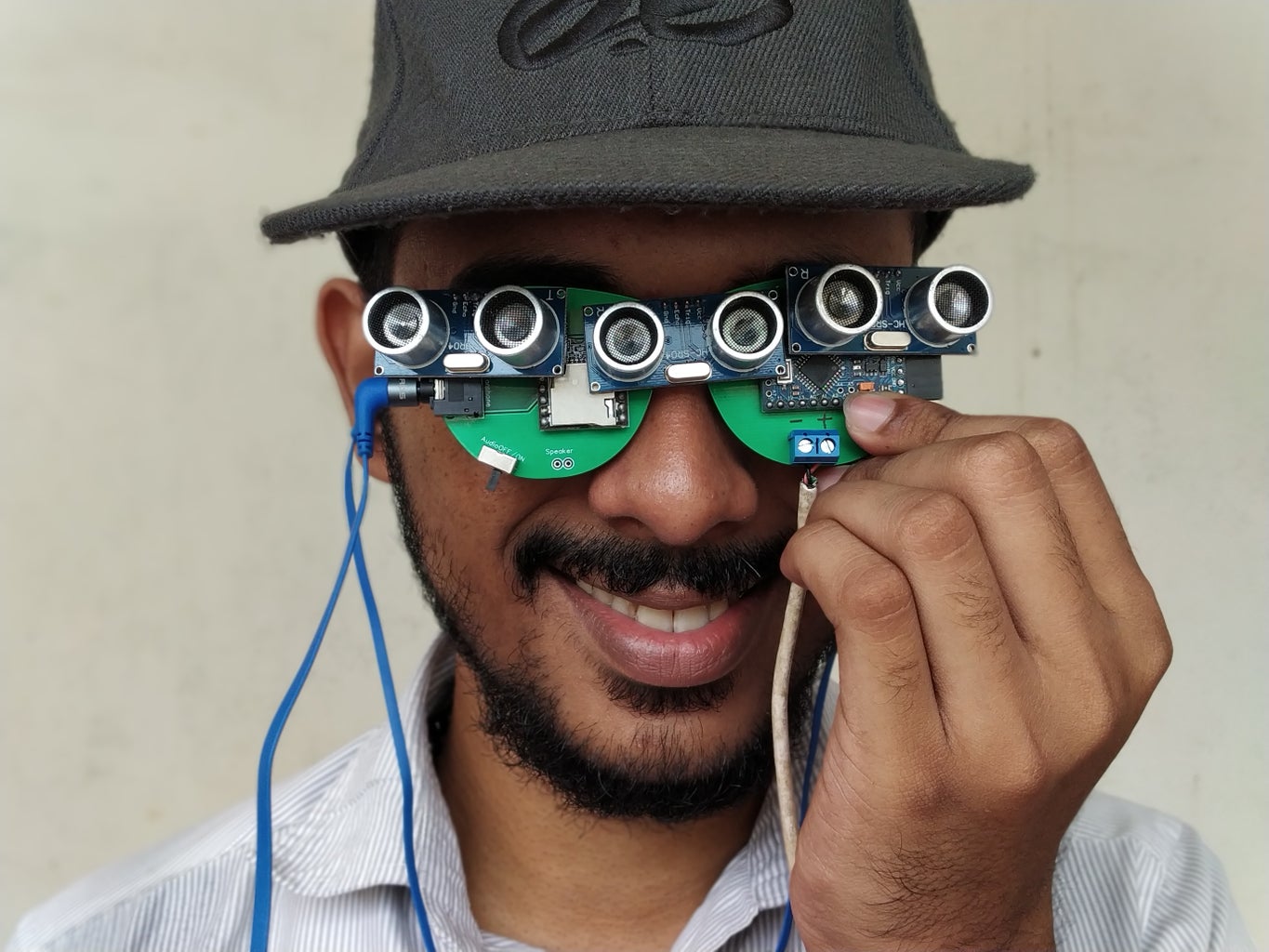Discover Advanced Assistive Instruments for People With Visual Impairments
The landscape of assistive innovation for people with aesthetic impairments is developing quickly, presenting an array of innovative devices that enhance autonomy and engagement. From wise glasses that perfectly combine visual input with auditory advice to sophisticated navigating applications that redefine spatial recognition, these devices are improving opportunities.
Smart Glasses Innovations
Smart glasses represent a significant improvement in assistive modern technology for individuals with visual impairments. Outfitted with video cameras and sensing units, clever glasses can capture real-time visual details, which is after that refined and conveyed to the customer via audio comments or haptic sensations.
In addition, improvements in expert system have actually additionally enhanced the abilities of wise glasses. Artificial intelligence algorithms can identify faces, reviewed text, and identify items, making them very useful tools for day-to-day tasks. Users can receive auditory signs that give context about their environment, promoting freedom and confidence.
Additionally, the ergonomic style and lightweight nature of many wise glasses make them appropriate for long term usage, ensuring comfort while improving performance. As these gadgets remain to evolve, they hold the possible to change the means individuals with aesthetic impairments experience their day-to-day lives, bridging the void in between availability and modern technology. The continuous research and growth in this field guarantee to broaden the possibilities for clever glasses, making them a vital element of modern-day assistive devices.
Navigating Application and Equipment
Many navigation apps and devices have emerged as crucial resources for people with visual problems, substantially enhancing their capacity to go across unknown atmospheres. These technologies utilize GPS functionality, audio cues, and real-time data to give individuals with precise navigating help.
One popular example is the Aira application, which links users to trained representatives that can supply aesthetic summaries of surroundings and navigating assistance through a real-time video clip feed. This service boosts the individual's spatial recognition and confidence while browsing. One more noteworthy tool is Seeing Eye GPS, which offers voice-guided navigation and sights, making it possible for individuals to access crucial information concerning their surroundings.

As technology remains to advancement, the growth of more sophisticated navigation devices promises to additional equip people with visual problems, helping with seamless wheelchair and integration right into varied settings. Such advancements are crucial in advertising an extra inclusive culture.
Braille Innovation Improvements
In the last few years, innovations in Braille innovation have actually considerably transformed exactly how people with aesthetic disabilities gain access to information and involve with the world around them. The advancement of mobile Braille displays has actually revolutionized reading by enabling users to link wirelessly to computer systems, tablet computers, and mobile phones. These tools convert text right into Braille in real-time, enabling seamless interaction with electronic content.
In addition, ingenious Braille printers have emerged, improving the manufacturing of tactile products. Modern embossers are much faster and much more efficient, enabling the fast production of Braille papers and academic products. This effectiveness reduces the time and expense related to generating Braille sources, making them much more easily accessible to organizations and institutions.
In addition, the integration of Braille with various other technologies, such as artificial knowledge and maker understanding, has opened new methods for tailored learning experiences. Voice recognition and synthesis technologies can complement Braille, supplying a comprehensive approach to information dissemination.
As the need for comprehensive education and learning and office environments grows, these technical innovations play a critical role in empowering individuals with visual impairments, guaranteeing they have equivalent access see here now to info and chances in different elements of life.
Wearable Gadgets for Independence
An expanding range of wearable devices is boosting freedom for individuals with aesthetic disabilities, using cutting-edge services that boost navigation and day-to-day living. Braille displays and notetakers. These gadgets utilize innovative modern technologies to give real-time responses and assistance, advertising autonomy in different atmospheres
Wearable modern technology likewise includes smartwatches that can be programmed with access features, making it possible for individuals to get alerts, track their locations, and even call for support with the touch of a button. Some devices integrate man-made intelligence to evaluate the atmosphere, offering audio summaries of close-by things or individuals.
Voice-Activated Assistive Solutions
Leveraging voice-activated assistive solutions has transformed the landscape of support for individuals with visual disabilities, supplying hands-free communication and accessibility to a range of jobs. These innovations use natural language handling and man-made knowledge to allow users to perform day-to-day activities via basic voice commands.

Moreover, current improvements in voice acknowledgment accuracy have enhanced the user experience substantially, fitting diverse accents and speech patterns. This inclusivity ensures that even more individuals can take advantage of these technologies, cultivating a better sense of autonomy.
Conclusion
In conclusion, the advancement of innovative assistive tools considerably boosts the independence and lifestyle for individuals with aesthetic disabilities. Innovations such as clever glasses, navigating applications, Braille innovation, wearable gadgets, and voice-activated solutions collectively cultivate an even more inclusive environment. These innovations encourage customers to navigate their environments with confidence and involve even more fully with the world, ultimately advertising better accessibility and equal possibilities for individuals facing visual difficulties.
The landscape of assistive modern technology for people with aesthetic problems is advancing rapidly, presenting a range of ingenious tools that boost freedom and involvement.Smart glasses stand for a significant improvement in assistive modern technology for individuals with visual problems. As these devices continue to advance, they hold the possible to revolutionize the means people with aesthetic disabilities experience their everyday lives, bridging the gap in between ease of access and innovation.In recent years, improvements in Braille modern technology have actually substantially optometry future outlook transformed just how people with aesthetic impairments gain access to details and engage with the world around them. These modern technologies equip individuals to navigate their environments with self-confidence and involve more completely with the globe, inevitably promoting higher accessibility and equivalent chances for individuals dealing with aesthetic difficulties.